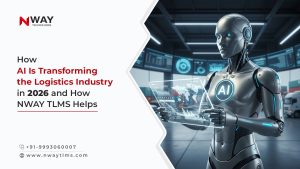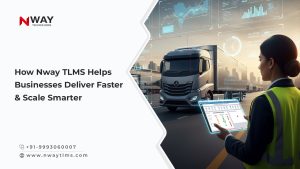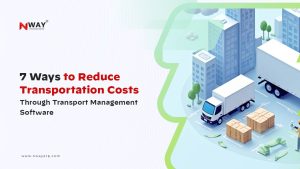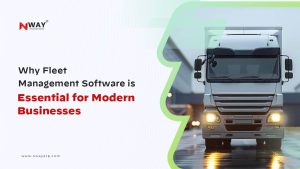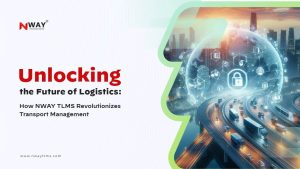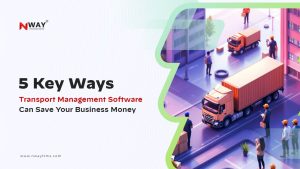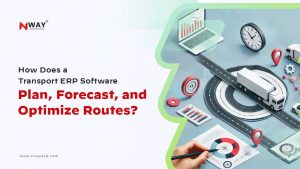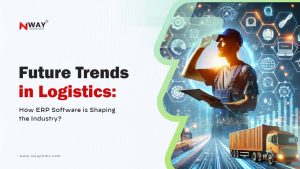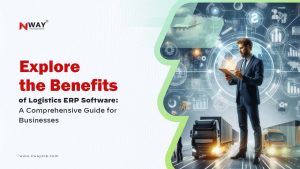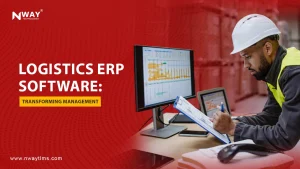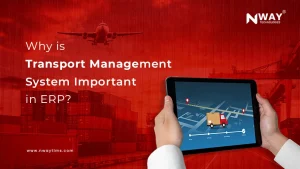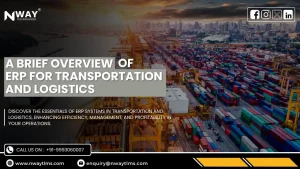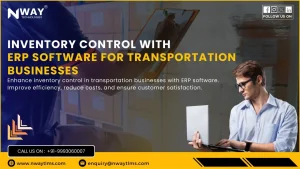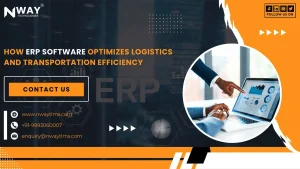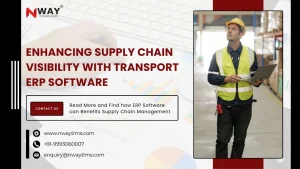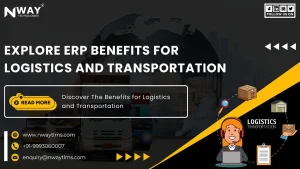A Brief Overview of ERP for Transportation and Logistics
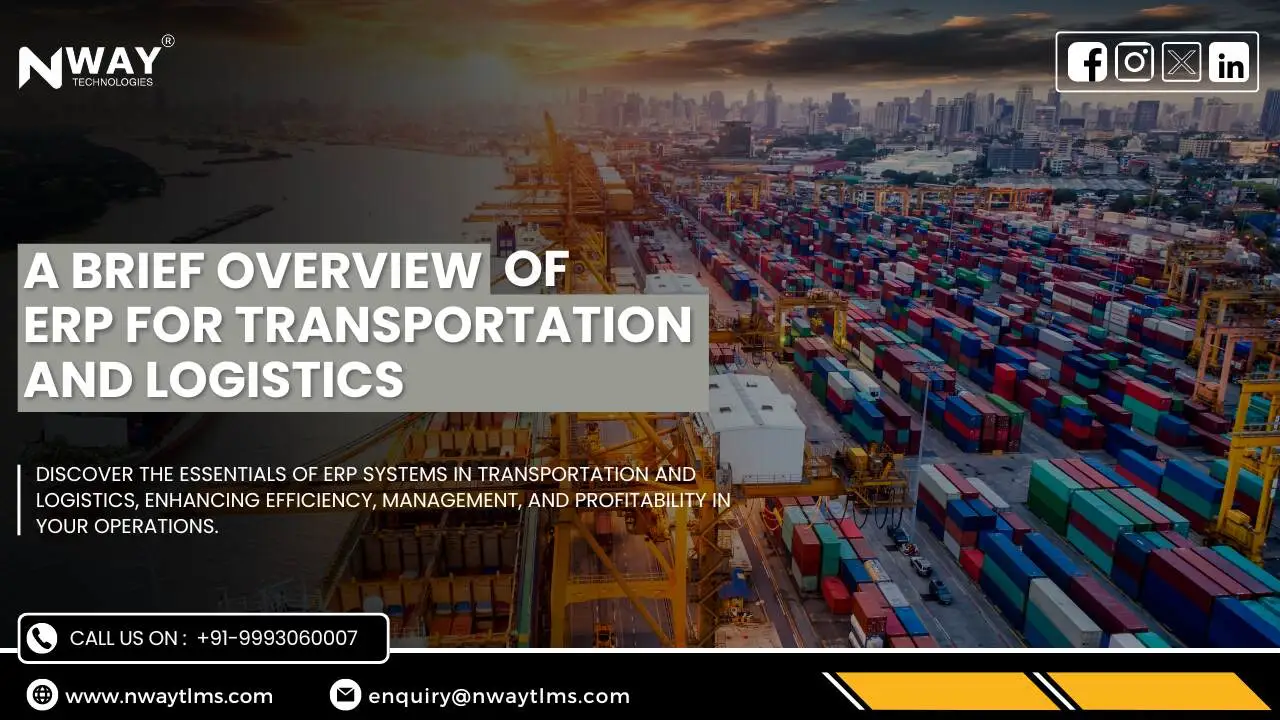
The industry of logistics and transport is at the heart of global economics that ensures the seamless circulation of services and goods all over the globe. In this day and age in which efficiency, speed and precision are essential, the application of cutting-edge technology is vital. One of these technologies is present in Enterprise Resource Planning (ERP) software. ERP for Transportation and Logistics has transformed the way logistics and transportation businesses operate.
ERP software offers a comprehensive solution for managing the numerous parts of their business. In this essay, we will look at the difficulties of ERP systems for transportation and logistics. We will also discuss the benefits, functions, and real-world applications.
Understanding ERP in Transportation and Logistics
What is ERP?
Enterprise Resource Planning (ERP) is a kind of software which integrates different business processes into one system. ERP allows companies to control and automate various back-office processes in relation to technology, services as well as human resources. To manage logistics and transportation, ERP systems provide a central location to streamline processes, increase efficiency and improve the process of making decisions.
Importance of ERP in Transportation and Logistics
The field of logistics and transportation is a complex field, requiring complicated operations like the management of inventory, order processing as well as logistics management for warehouses, fleet management as well as supply chain coordination. The manual management of these processes or using different systems could cause inefficiencies, higher cost, and even errors.
ERP solutions address these issues with a comprehensive solution that combines all crucial aspects, which allows continuous coordination, and instant information access.
Key Features of ERP for Transportation and Logistics
1. Fleet Management
The transportation industry relies heavily on fleet management. ERP solutions provide complete fleet management functions, allowing businesses to monitor and govern their fleets in real time. Some of the features are:
Vehicle Tracking: Track the position and condition of every vehicle by using GPS and the telematics.
Maintenance Scheduling: Create automated maintenance plans in order to make sure that vehicles are maintained punctually, which reduces the amount of downtime, and also extends the life of your vehicle.
Fuel Management: Keep track of fuel consumption, and improve routes in order to cut the cost of fuel.
Driver Management: Monitor driver's schedules and monitor their driving habits to ensure that the driver is in line with the law.
2. Warehouse Management
A well-organized warehouse management system is crucial for ensuring timely delivery as well as client satisfaction. ERP software provides comprehensive tools for managing warehouses, like:
Inventory Management: Monitor inventories, monitor inventory movements and streamline reordering procedures.
Order Fulfillment: Automate order selection as well as packing and shipping in order to guarantee timely and precise delivery.
Space Optimization: Make the most of warehouse space by utilizing advanced layouts and storage plans.
Barcodes and RFID Integration: Integrate RFID and barcode technology to ensure accurate tracking of inventory as well as faster processing.
3. Supply Chain Management
The supply chain forms the mainstay of logistics and transportation. ERP tools improve the supply chain management by
Demand Forecasting: Utilize historical information as well as analytics to anticipate demand and schedule inventory according to it.
Supplier Management: Manage relationships with suppliers, monitor performance and make sure that you get your order in time for items.
Order Management: Automate the process of processing orders, starting with order entry and ending with delivery, which reduces mistakes and time delays.
Real-time Visibility: Real-time visibility is gained across the supply chain in general which allows proactive decision-making, as well as issues resolution.
4. Financial Management
The accuracy of financial management is vital to the overall success of every business. ERP software provides robust instruments for managing finances, such as:
Accounting: Automatize accounting tasks including invoicing, accounting payable and receivables.
Budgeting and Forecasting: Make detailed budgets and forecasts that plan for the future costs and revenues.
Cost Management: Monitor and control the costs of transportation and logistics.
Conformity: Ensure compliance with the financial regulations and standard.
5. Customer Relationship Management (CRM)
Maintaining strong relationships with customers is crucial in the transportation and logistics sector. ERP software can provide CRM functions for:
Customer Support: Manage customer inquiries or complaints and service demands effectively.
Order Tracking: Give customers actual-time information on their orders as well as shipments.
Sales Management: Keep track of sales activities as well as manage leads. evaluate the performance of sales.
Marketing Automation: Create automated marketing strategies and monitor their performance.
6. Analytics and Reporting
Decision-making based on data is crucial to improving operations. ERP Systems provide robust analytics and tools for reporting including:
Real-time Dashboards: Real-time dashboards are available that give insight into the most important performance indicators (KPIs).
Custom-designed Reports: Create custom-designed reports to study specific areas of your business.
Data Integration: Integrate data from diverse sources to perform a thorough analysis.
Predictive Analytics: Make use of predictive analytics spot trends and make well-informed decision-making.
Benefits of ERP for Transportation and Logistics
1. Improved Efficiency
Through automation and integration of various operations, ERP systems significantly improve the efficiency of operations. Work that was previously the subject of manual intervention could be automated in order to reduce the amount of time and energy necessary to accomplish the task.
2. Enhanced Visibility
ERP software provides real-time insights throughout all aspects of transport and logistics. This transparency allows businesses to assess performance, pinpoint the root of problems and make choices quickly.
3. Cost Savings
The implementation of an ERP system could yield significant savings in costs. With the help of optimizing routes, cutting down on energy consumption, decreasing interruptions, and enhancing control of their inventory, firms are able to reduce operational expenses.
4. Better Customer Service
By utilizing ERP software, transport and logistics companies are able to provide more efficient customer services. Continuous order monitoring, on-time delivery and efficient handling of inquiries from customers contribute to better customer satisfaction.
5. Scalability
ERP Systems are flexible and adapt to the needs of the business. No matter if you're an entry-level logistics firm or an enterprise with a huge transportation budget ERP systems are modified to suit your individual requirements, and can accommodate growth in the future.
6. Regulatory Compliance
The compliance with regulations of the industry is essential in the transport and logistics industry. ERP software helps maintain compliance through automating procedures as well as keeping records that are accurate, and supplying audit reports.
Challenges and Considerations in Implementing ERP for Transportation and Logistics
1. Cost and Complexity
The process of implementing an ERP software can be expensive and complicated. Initial investments, modifications as well as the training needed can be significant. But the benefits over time are often greater than the initial cost.
2. Integration into Existing Systems
The integration of the ERP system with other procedures and systems is difficult. It is vital for seamless compatibility and data transfer across the ERP system and the other programs.
3. Change Management
Incorporating the ERP system will require significant adjustments to the way operations are run. Management of change is essential for ensuring that employees are properly trained and the process can be smooth.
4. Data Security
Security of data is an essential factor when it comes to the implementation of any ERP program. Logistics and transportation companies need to make sure that they have an ERP software that has strong security features that protect the important information.
Future Trends in ERP for Transportation and Logistics
Artificial Intelligence and Machine Learning
The integrating AI (AI) as well machine learning (ML) in ERP platforms is a rising trend. AI as well as ML are able to improve predictive analytics, streamline procedures for making decisions and enhance the efficiency of operations.
Internet of Things (IoT)
The Internet of Things (IoT) has revolutionized the transportation and logistics sector. IoT devices are able to provide instant information on the status of vehicles as well as cargo condition as well as environmental variables. ERP systems are able to integrate these data sources to increase transparency and improve decision making.
Cloud-based ERP
Cloud-based ERP solutions are becoming more well-known due to their versatility as well as their scalability and cost effectiveness. Cloud-based ERP systems allow logistic and transportation companies to work with their ERP at any time, which facilitates remote collaboration and work.
Blockchain Technology
Blockchain technology is able to transform supply chain management with its secure, transparent and secure records. Integration of blockchain into ERP systems will increase transparency and safety for the transportation and logistics industry.
READ MORE : Inventory Control with ERP Software for Transport Businesses
Conclusion
ERP systems are now essential devices for logistic and transportation firms, providing a comprehensive solution for managing and optimizing the various elements of their business. In addition to improving efficiency, increasing the visibility of their operations, cutting costs as well as providing superior service to customers, ERP systems can contribute to the development and success of companies in this field.
With the advancement of technology, ERP systems will continue to incorporate advanced functions like AI, IoT, and blockchain. This will continue to transform the logistics and transportation landscape. To ensure that companies remain ahead of the curve and be able to meet the requirements of an ever-changing market investing in a reliable ERP software is essential.
Let’s make running your construction business a little less crazy.
Subscribe for weekly insights.
Recent Posts


